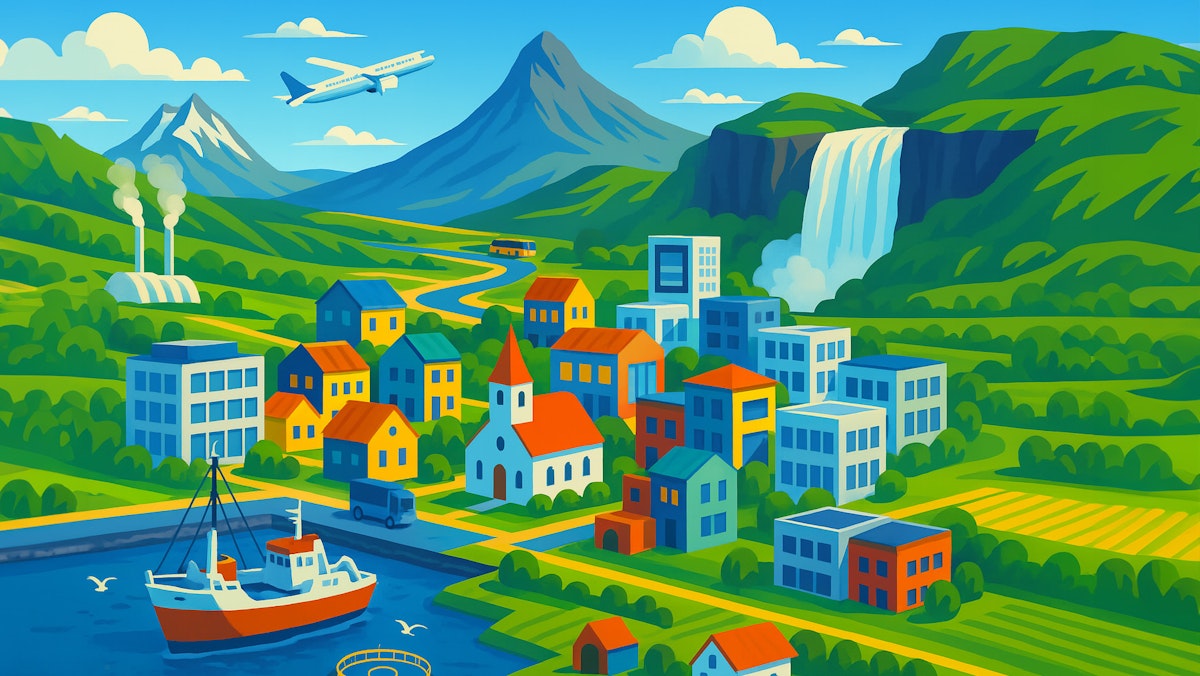Icelandic Economy Q2 2023
The Iceland Chamber of Commerce has published a new quarterly edition of The Icelandic Economy, a report giving a unique and comprehensive overview of the economy.
The report covers the development of short-term indicators, the current state and outlook of the economy, external trade in goods and services, inflation and currency developments and outlook, and other economic insights.
Highlights
Economic Developments
The Icelandic economy has demonstrated notable resilience in recent years, exhibiting robust signs of recovery. In 2022, GDP growth measured 6.4%, which is the highest growth in over 15 years. The developments were driven by strong private demand and increased trade. However, the recovery and external conditions triggered a hot housing market, a tight labour market, and mounting inflationary pressure. In response, the Central Bank of Iceland started to raise interest rates, as it has for the twelfth time in a row now. The key interest rate now stands at 7.5%, which is 6.75 percentage points higher than its lowest in 2021.
The Central Bank's efforts to ensure price stability seemed to be making their mark, but the April figures suggest that inflation will prove more persistent than previously anticipated. Both the CPI and housing prices rose unexpectedly. Despite rising rates and high inflation, the overall position of the Icelandic economy remains favourable. Households reporting a housing expense burden are low, and debt levels are low. Moreover, firms' non-performing loan ratios have decreased, and the tourism industry has almost reached peak levels.
Forecasts project continued, albeit decreased, economic growth in the coming years. Moreover, Iceland's external position remains strong with the Net International Investment Position 24% positive of GDP. Also, newly registered investments in 2022 were high and largely due to investments in listed shares and government bonds.
Iceland aims to be carbon-neutral and fossil fuel-independent by 2040. These are ambitious goals but considering that Iceland has the highest share of renewables in the world, it could be the first country in the world to reach those goals. A recent report published by the Ministry of the Environment, Energy, and Climate analyses the future of wind power in Iceland. The report will help investigate wind power's role in the energy transition ahead in Iceland.
Iceland at Glance
Iceland ranks 16th out of 63 countries in IMD’s 2022 competitiveness report, whereas infrastructure and business efficiency rank 8th and 4th, respectively. Also, Iceland ranks 3rd in IMD’s 2022 World Talent Ranking. Improvements are due to progress in Investment & Development and Appeal. The highly anticipated 2023 IMD competitiveness report will be published in June, and we cannot wait to see where Iceland will be ranked. The country also ranks highly on several other international indicators, such as gender equality, global peace, and social progress.
Industrial Framework
Iceland is a parliamentary republic with a large public sector. The Central Bank targets inflation, and the financial system is characterized by prominent pension funds and banks.
The Chamber offers presentations based on the report. For further information, please contact our Economists, Elísa Arna Hilmarsdóttir (elisa@vi.is) and Gunnar Úlfarsson (gunnaru@vi.is).

